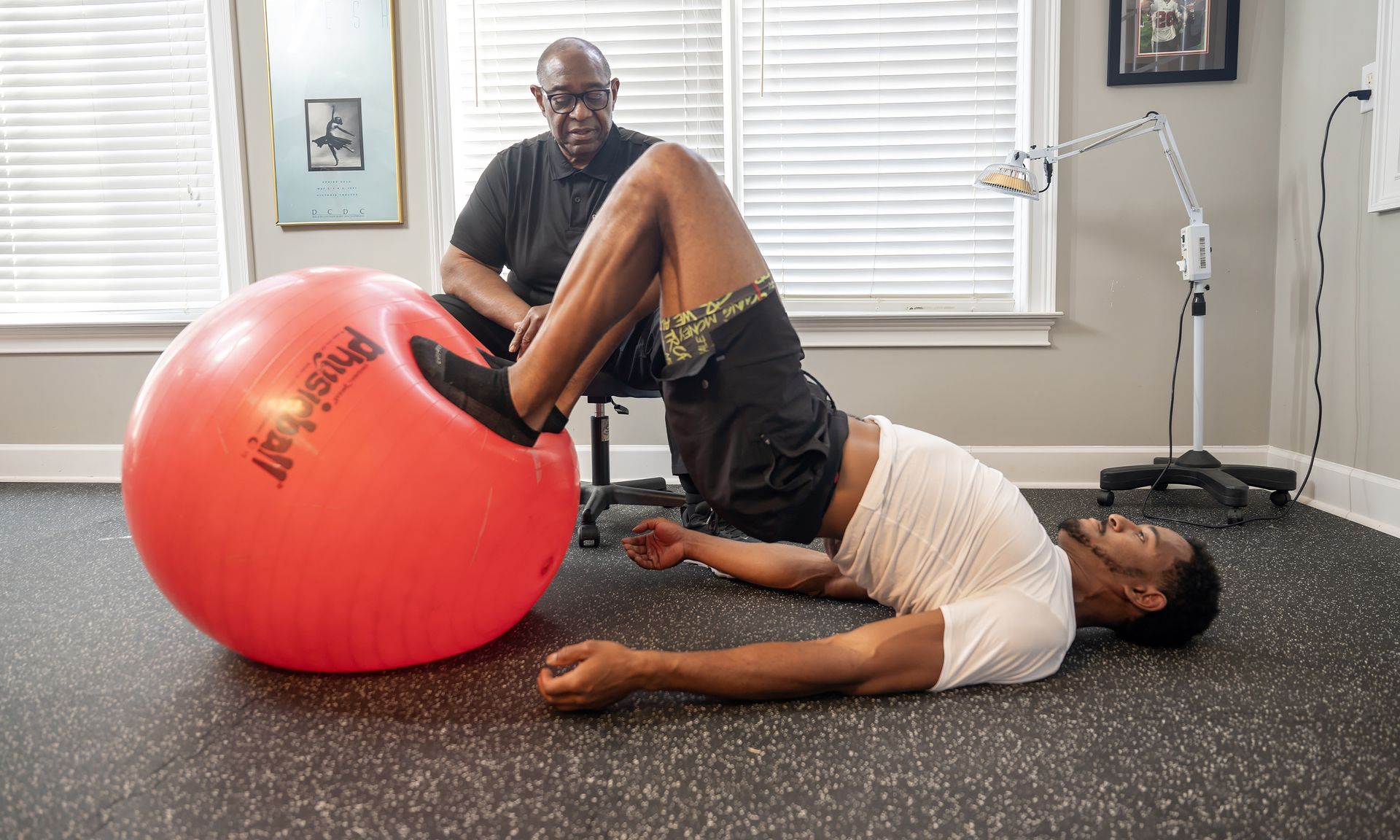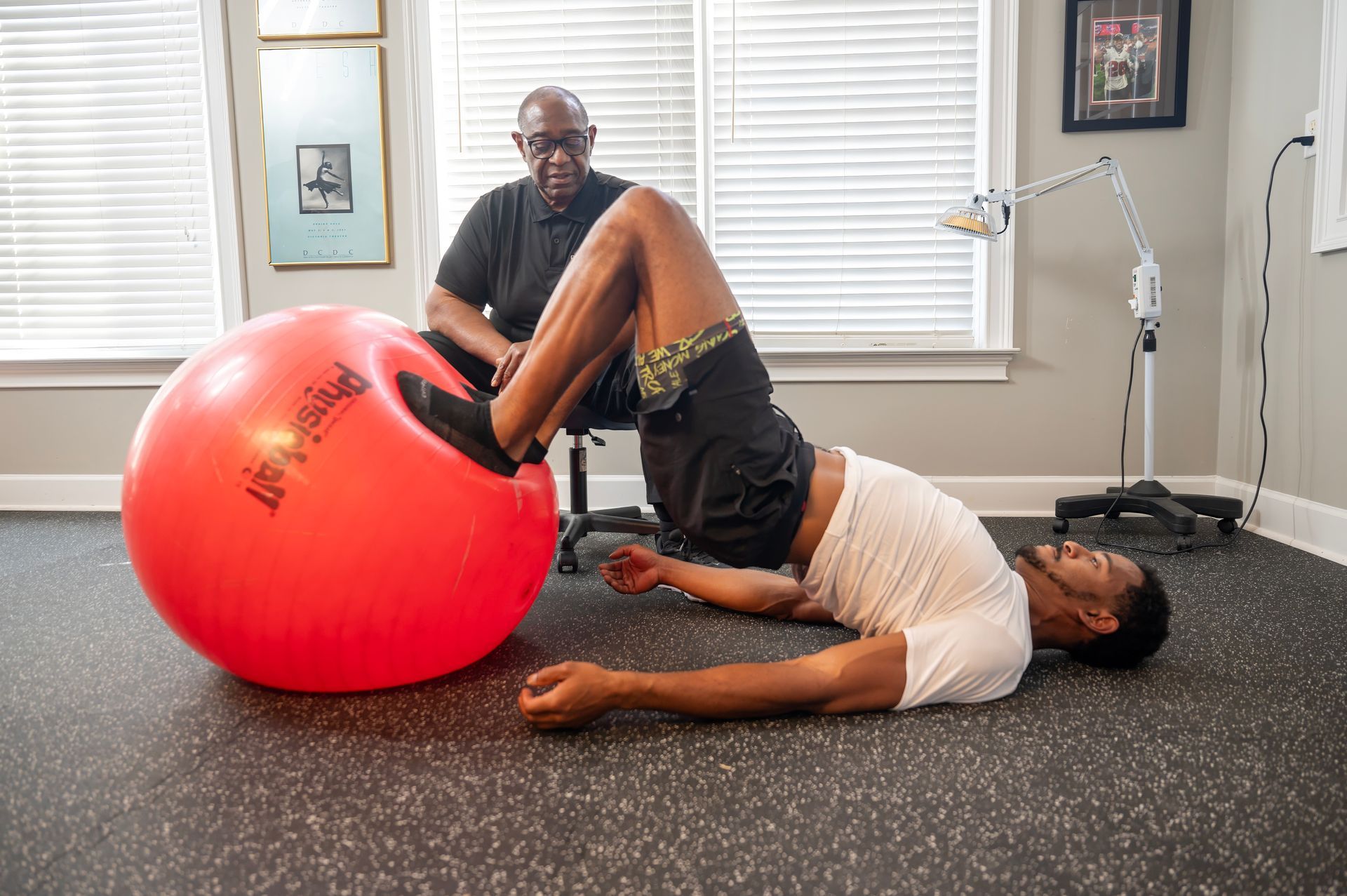BALANCE
Regain Your Balance and Confidence: Expert Solutions for Fayetteville, Fayette County, and Atlanta Areas
Balance Problems: Understanding Causes, Diagnosis, and Effective Improvement Tips
Balance problems can significantly disrupt daily life, making simple tasks challenging and increasing the risk of falls. Understanding the causes of balance issues, the diagnostic methods used to identify them, and effective strategies for improvement is essential for regaining stability and enhancing overall quality of life.
What Are Balance Problems?
Balance problems refer to difficulties in maintaining stability while standing, walking, or performing daily activities. They can range from mild unsteadiness to severe dizziness and loss of coordination. Addressing balance issues is crucial for preventing falls and enhancing overall mobility.
What Causes Balance Problems?
Balance problems can arise from several factors, including:
- Inner Ear Disorders: Conditions like vestibular neuritis or BPPV affect the inner ear and disrupt balance.
- Neurological Conditions: Diseases such as Parkinson’s or stroke impair balance through nervous system disruptions.
- Musculoskeletal Issues: Weakness or stiffness in the legs or back, often from arthritis, can affect stability.
- Vision Problems: Poor vision impacts balance by disrupting visual input crucial for stability.
- Medications: Some drugs, particularly those affecting the central nervous system, may cause dizziness or balance issues.
How Are Balance Problems Diagnosed?
Diagnosing balance problems involves a thorough evaluation by a healthcare professional. The diagnostic process may include:
Medical History Review
Discussing your symptoms, medical history, and any medications you are taking to identify potential causes.
Physical Examination
A comprehensive physical exam to assess strength, coordination, and balance.
Balance Tests
Specific tests, such as the Romberg test or the Berg Balance Scale, may be conducted to evaluate stability and the risk of falls.
Imaging Studies
In some cases, imaging tests like MRI or CT scans may be ordered to rule out underlying conditions affecting the brain or inner ear.
Effective Improvement Tips for Balance Problems
If you are experiencing balance issues, consider implementing these strategies to improve stability:
- Engage in Physical Therapy: Collaborating with a physical therapist can help you develop a personalized exercise program focused on strengthening muscles, improving coordination, and enhancing balance.
- Incorporate Balance Exercises: Activities such as tai chi, yoga, and specific balance training exercises can enhance stability and flexibility.
- Modify Your Home Environment: Make necessary changes to your living space, such as removing tripping hazards, adding grab bars, and ensuring adequate lighting to reduce fall risks.
- Address Vision Issues: If you have vision problems, consider scheduling an eye exam and updating your prescription glasses to improve visual acuity.
- Stay Active: Regular physical activity helps maintain strength and flexibility, reducing the likelihood of balance problems as you age.
Take the First Step Towards Better Balance with Professional Support
If you are struggling with balance problems, seeking professional help is crucial for regaining stability and improving your quality of life. Contact ProLevel Recovery today at (770) 716-9121 to schedule an appointment with our experienced healthcare team. We are dedicated to providing personalized care and effective treatment options tailored to your specific needs.
Don't let balance issues hold you back any longer. Take the first step towards a more stable and confident future by reaching out to our clinic today. Our team of experts is here to guide you through the process and help you achieve your goals of improved balance and overall well-being.
Comprehensive Answers to Your Balance Problems: Expert Solutions and Insights
Your Balance Questions Answered: Expert Solutions and Insights for a Steady Life
What are common causes of balance problems?
Balance problems can be caused by inner ear disorders, neurological conditions, musculoskeletal issues, vision problems, and side effects from medications.
How do inner ear disorders affect balance?
Inner ear disorders like vestibular neuritis and Meniere's disease disrupt the vestibular system, leading to dizziness and instability.
Can neurological conditions impact balance?
Yes, conditions such as Parkinson's disease and stroke can impair coordination and balance by affecting the nervous system.
What role do musculoskeletal issues play in balance problems?
Weakness or stiffness in the legs, hips, or back, often from arthritis, can limit mobility and contribute to balance issues.
How can vision problems lead to balance difficulties?
Impaired vision affects your ability to maintain stability and orientation, which can lead to balance problems.
How can physical therapy help with balance problems?
Physical therapy can strengthen muscles, improve coordination, and enhance overall stability through targeted exercises and balance training.







